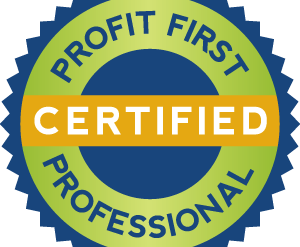Resilience is crucial for small businesses because they face unique financial challenges that can make them more vulnerable than larger companies. Limited cash reserves, tight profit margins, and greater sensitivity to economic fluctuations mean that even minor disruptions—such as an unexpected expense, a delayed payment, or an economic downturn—can significantly impact their survival. Here’s why resilience matters for small businesses and how the Profit First system can help foster it.
Why Financial Resilience is Vital for Small Businesses
- Limited Cash Reserves
- Unlike larger companies that often have extensive cash reserves or access to lines of credit, small businesses typically operate with much leaner budgets. This lack of cushion means that even short-term cash flow interruptions can threaten a small business’s ability to pay for essential expenses like rent, payroll, and inventory.
- Financial resilience allows small businesses to maintain stability even when cash flow is tight. It ensures they can cover crucial expenses without taking on debt or making drastic cuts.
- Vulnerability to Economic Fluctuations
- Small businesses are particularly sensitive to economic changes, such as shifts in consumer demand, supply chain disruptions, or inflation. Economic downturns, for example, can lead to decreased sales, delayed payments from clients, or rising costs, all of which can quickly strain a small business’s finances.
- Resilience helps businesses weather these economic fluctuations without sacrificing their long-term goals. With resilience, small business owners can adapt to changing circumstances, making adjustments without putting their operations at risk.
- Unpredictable Revenue Cycles
- Many small businesses experience revenue fluctuations, especially those that rely on seasonal sales or project-based work. These unpredictable cycles can make it challenging to manage cash flow, pay regular expenses, and keep up with growth goals.
- Financial resilience enables business owners to navigate the highs and lows without constantly struggling for cash. It helps smooth out the financial peaks and valleys so that the business remains stable, even when income varies.
- Greater Risk from Unexpected Expenses
- Small businesses often lack the resources to absorb unexpected expenses, like emergency repairs, new regulatory costs, or supplier price increases. When these costs arise, they can throw a small business off balance if it doesn’t have the reserves to cover them.
- With resilience, small businesses are better prepared to absorb these costs without having to cut back in other areas, take on debt, or lose ground on their financial goals.
How Profit First Builds Financial Resilience
The Profit First system offers a structured approach to building financial resilience, helping small business owners prioritise cash flow stability, preparedness for taxes, and consistent profitability.
- Prioritising Profit with Allocations
- Profit First requires business owners to allocate a portion of every dollar earned to profit before paying other expenses. This discipline ensures that profit is never an afterthought but a consistent, tangible reward for the business.
- By setting aside profit regularly, small businesses create a financial cushion that grows over time. This reserve can act as an emergency fund, helping the business navigate tough times without the need for loans or credit.
- Building a Cash Reserve with Separate Accounts
- Profit First encourages setting up separate bank accounts for Profit, Owner’s Pay, Taxes, and Operating Expenses. This structure prevents funds from mingling and provides clear visibility into how much money is available for different purposes.
- By allocating a set percentage to each account, businesses create a “financial buffer” in categories like Taxes and Profit, reducing the risk of financial surprises and giving the business more control over its cash flow.
- Improving Cash Flow Stability with Consistent Allocations
- Regularly allocating funds to specific accounts ensures that there’s always cash available for essential business functions. For instance, having a dedicated Owner’s Pay account ensures that the owner is compensated consistently, regardless of income fluctuations. Likewise, setting aside taxes prevents cash flow disruptions at tax time.
- This consistency provides the stability small businesses need to plan ahead and cover their obligations, even during slower months or when expenses temporarily rise.
- Reducing Debt Dependence and Encouraging Sustainable Growth
- Profit First discourages overspending and promotes operating within one’s means, reducing the temptation to rely on debt for growth. When a business operates with profit in mind and avoids overspending, it builds resilience and ensures that growth is funded through its own cash flow, not external debt.
- By avoiding high-interest debt, small businesses retain more of their income, strengthening their financial foundation and leaving them better prepared for future opportunities or challenges.
- Maintaining Financial Flexibility and Adaptability
- With cash consistently set aside, small businesses have more flexibility to pivot or respond to changing conditions. This adaptability allows them to invest in new opportunities, cover unexpected costs, or handle revenue fluctuations without compromising their financial health.
- Profit First’s approach of regular, disciplined allocations also makes it easier to identify areas where spending can be adjusted or redirected if circumstances change, helping businesses remain resilient through uncertainty.
Summary: How Profit First Fosters Resilience in Small Businesses
By promoting profitability as a priority, building cash reserves, and ensuring consistent allocations, Profit First helps small businesses develop a resilient foundation. This resilience means being prepared for unexpected challenges, maintaining stability during economic fluctuations, and growing sustainably without overextending financially. In short, Profit First empowers small business owners to take control of their finances, allowing them to build a business that’s capable of weathering challenges and thriving in the long term.




